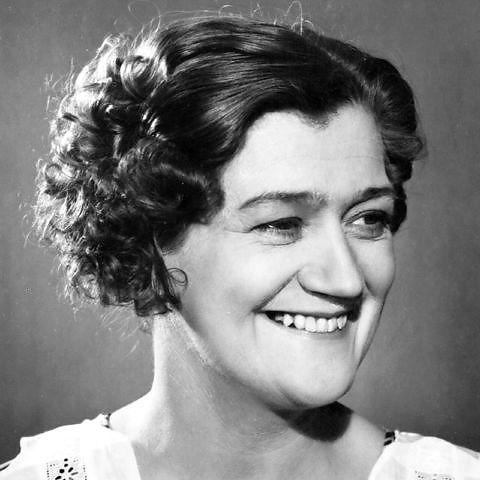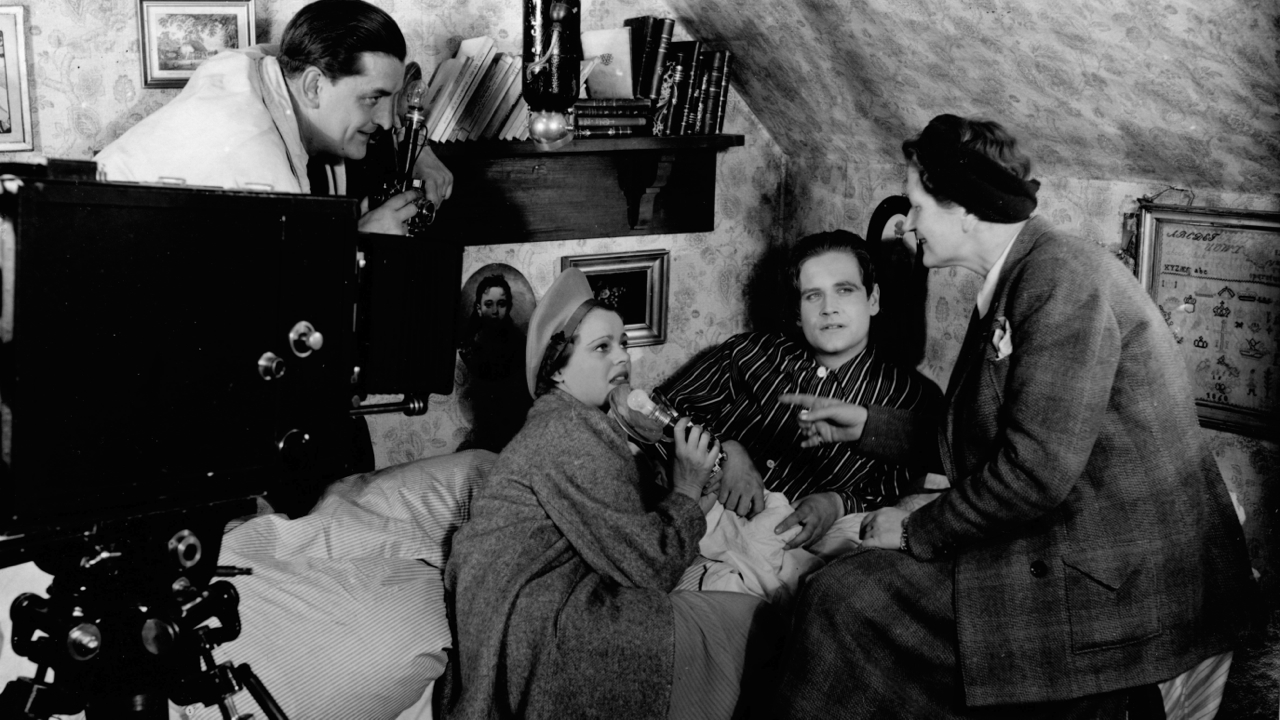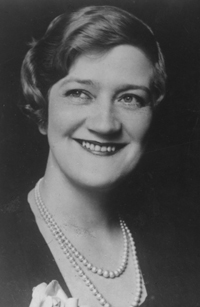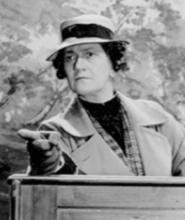Bodil Ipsen was Denmark’s prima donna of the theatre in the first half of the 20th century, famous for her temperament, her spontaneity and her intensity. Having made her debut on the stage in 1909, her debut in film came in 1913. As an actor she managed to play more than 200 roles in films, the theatre and television.
Ipsen had a colourful personality both on stage and off, and many young actors saw her as an idol and role model. One of them was Ingrid Bergman, who may have seen Ipsen in Stockholm when she made guest appearances at Konserthusteatern in 1931 and at the Royal Dramatic Theatre in 1935. The 1930s was also the period in which Ipsen acted in her most notable film roles.
Between 1942 and 1951 Ipsen directed ten films, most of them in her native country. As a film director she was interested in stretching genre limits and in the capacity of film to reflect human weakness and desire. Derailed (Afsporet, 1942) centres on a woman who loses her memory and gets drawn into a life of vice in the most seedy districts of Copenhagen. Jewish actor Ilona Wieselmann played the lead, and the film is hailed today as an excellent example of film noir.
In The Earth Will Be Red (De røde enge, 1945; US titles: Red Meadows / The Red Earth) she depicts the Danish resistance movement, something she had experienced at first hand. Her husband, the journalist Ejnar Black, was a member of the resistance who had been forced to flee to Sweden.
As a film director Ipsen was also chiefly interested in directing the cast, delegating the technical aspects of the job to others, such as her co-director Lau Lauritzen jr. and the cinematographer Valdemar Christensen. Ipsen was renowned for coaxing the unexpected from her actors, and she could be a very hard taskmaster. For example, Ib Schönberg, who was best known for comedy, played the demanding leading role of a damaged alcoholic in Café Paradise (Café Paradis,1950). In three of her films Ipsen also used the Swedish actor Gull Maj Norin who became a major film star in Denmark, enjoying notable success in films such as Ipsen’s thriller Murder Melody (Mordets melodi, 1944).
In 1946 Ipsen directed a film in Sweden. Based on a British play, Wedding Night (Bröllopsnatten) was a romantic comedy starring Sickan Carlsson, Inga Landgré and the Danish actor Max Hansen. Shot at the Europa Films studio in Sundbyberg, the film was not a commercial success and was never released in cinemas in Denmark.
It has been said of Bodil Ipsen that she was a great tragedienne on the stage, whereas in the world of film she was a real woman of the people. The major Danish Film awards the Bodils are named after her and her fellow actor Bodil Kjer.
Mikaela Kindblom (2013)
(translated by Derek Jones)
Basic info
Main profession: Director
Born: 1889
Died: 1964
Active: 1913-1960
Filmography
Regi:
Det sande ansigt (1951)
Café Paradis (1950)
Støt står den danske sømand (1948)
Bröllopsnatten (1947)
De røde enge (1945)
Mordets melodi (1944)
Besættelse (1944)
Drama paa Slottet (1943)
Afsporet (1942)
En herre i kjole og hvidt (1942)
Roll:
Det gyldne smil (1935)
Awards
1948 – Ipsen fick, tillsammans med Bodil Kjer, Danmarks äldsta filmpris, Bodilprisen, uppkallat efter sig. Hon hann själv med att vinna priset två gånger före sin död.
1922 – medaljen Ingenio et arti
1935 – Tagea Brandts rejselegat for kvinder
1948 – Fortjenstmedaljen i guld
1959 – utnämndes Ipsen till kommendör av Dannebrogsorden.



